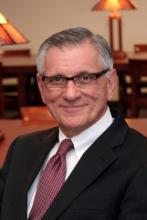What Is It
Is work the curse of the working class? Or a human's best opportunity for happiness and meaning? What is work, and what is leisure? Are you what you do? And how does American society differ in its attitude towards work, and holidays, from others? John and Ken discuss these issues and more with Al Gini from Loyola University Chicago, author of My Job, My Self: Work and the Creation of the Modern Individual. This program was recorded live at Centenary College in Shreveport, LA.
Listening Notes
We philosophize about all sorts of things, but for some reason we never seem to say much about work. Why is that? Do we hate work that much? We certainly don’t stay quiet for lack of philosophical material—there’s certainly something to say about why we work, what role work ought to play in our lives, and what your job can tell you about how you think. After all, we spend a huge amount of our lives working—what could be more philosophically relevant?
Al Gini, author and professor of business ethics joins John and Ken to help sort through these issues. It seems like the most noteworthy aspect of work is that hardly anyone likes it. In fact, recent studies have shown that the vast majority of people are dissatisfied with their jobs. That doesn’t just mean that they occasionally find work frustrating or wish they could be cruising in the Caribbean—they actively dislike their jobs, and with intensity.
But why do we live in a society where so few people enjoy their work? Obviously not all jobs are good and someone will always be stuck doing something they’re not crazy about—but all the same, does the situation need to be as bad as it is? Why don’t more people find meaning in their work? Is the issue that we work too much? Should we be looking for a middle ground between slackers like John and workaholics like Ken? What if we only had to work a few hours a week?
There’s also the question of perspective—how does our work influence our perceptions of the world around us? Do police officers see the world at its worst? Do doctors see the world as filled with maladies that must be cured? Do philosophers see confusion everywhere they look because of their line of work?
Why do we work? Aristotle thought that the purpose of work is to give us leisure time. But what if you love your work? Unlike most of the world, we have options in terms of what we do for a living—how should we choose? Should we just be happy to have jobs? When is it too late in life to choose a new job? Listen in to find out more about what these cogitators have to say!
- Roving Philosophical Report (seek to 5:49): Zoe Corneli comes with interviews from a local shopping center. Why do people work? Is your work who you are? Or is work just something you can do so you can afford to be yourself in your free time?

Comments (2)
nunya_bill
Tuesday, August 28, 2018 -- 11:22 PM
Every activity is a form ofEvery activity is a form of work, and many have said professions for those activities. An example, for someone who doesn’t have a job or are told they don’t work for a living actually do work, sometimes harder than those with certain professions. Groceries shopping, meal prep, cleaning and organizing...can fit as a “work or a job in a variety of areas ( Nanny, caretaker,domestic worker....and even a budgeting analyst since that’s apart of those duties as well. A person mows their own lawn and shovels in the winter...again, it’s a form of work ( lawn care, landscaping)
Making small talk with friends and family....if they are having issues one can be tossed into the role of a therapist. You see, in the end it is all work. Now, whether or not that work is satisfactory or compensated is a different story. People often conflate both working and producing money as the same thing and then in turn might use that to judge others based on what they do for a living. But again, there is a difference between work/ vocation and producing money. Some people work very hard, enjoy it or not enjoy it and make very little money, and some people are very good at producing money with very little effort or “work”
Harold G. Neuman
Wednesday, September 7, 2022 -- 6:53 AM
This week, a friend inThis week, a friend in Ecuador and I had a difference of opinion on things that have been influenced by organized labor. This difference emerged from collage she sent me, via social media. An illustration in the collage included the phrase, civil rights. I was unmoved by this association and said so in a response to her post. I have no argument with gains made for workers by organized labor. A lot of good has been effected. What I am unable to resolve, to my satisfaction, is a direct, temporally proximate link that shows either a. Organized labor's furtherance of civil rights goals and objectives or, b. Furtherance, the other way 'round.. My friend sent me a lot more purported proof, none of which established the linkage I was looking for. There was back slapping and back scratching but that was about all. So, what do contributors/commenters to this blog think?